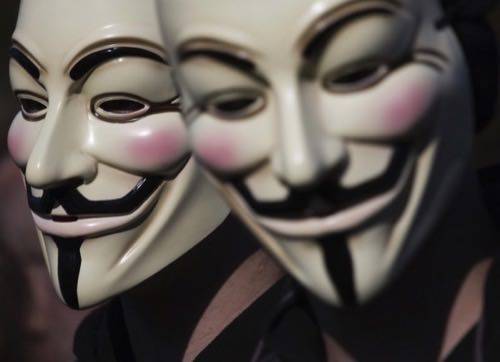
A new petition, organized by Anonymous, has been sent to the White House with the hopes of legitimizing DDoS attacks – those hacker-led techno-onslaughts that shut down Web sites.
The petition basically asks that distributed denial of service, or DDoS attacks, be designated as legitimate forms of protest. This is quite a stretch considering the amount of damage these attacks do (just ask the Federal government, JP Morgan Chase, Bank of America and a host of others). And the petition authors want those jailed for DDoS immediately released and their records cleared.
Fat chance, right?
The writers of the petition say DDoS attacks are the “equivalent of repeatedly hitting the refresh button on a webpage… Instead of a group of people standing outside a building to occupy the area, they are having their computer occupy a website to slow (or deny) service of that particular website for a short time.”
The petition needs 25,000 signatures by February 6 in order to trigger a White House response (as of Monday night, there were 5,420 signatories). Anything less than the required amount, and the White House can treat this like spam and junk it.
While it’s not likely to be effective, launching a petition like this in the wake of the death of Aaron Swartz and the wave of newfound support for hacktivists, may be the best possible timing for the petition to gain supporters (another online petition entitled “Reform the Computer Fraud and Abuse Act” also attempts to catch the rising support for hactivism). Still, that doesn’t mean it’s going to get real traction. A glass-half-empty look at the petition could classify it as a naive, tongue-in-cheek attempt from the black hat world to justify their activities – likely doomed to failure.
Chance Of Snow In Hell Today
“There is no way in hell the White House will ever legalize DDoS,” said activist and Australian journalist Asher Wolf. Wolf believes the petition comes from the Anonymous Collective. Attempts at contacting Anonymous were not returned at time of publication.
But this issue may not be as morally black-and-white as one mightl make it.
Security expert Dan Kaminsky says that while he wouldn’t sign the petition, he thinks the attempt is far from silly or naive. Kaminsky indicated that while the petition may be misguided, the idea of creating legitimate forms of online protest in the heavily guarded online world are needed.
“People are going to figure out how protest works in a system that has gotten very good at suppressing protest,” Kaminsky said. “I see where they’re coming from… I understand the desire.”
The fundamental problem with DDoS, Kaminsky added, is the numbers disparity between those who perform the DDoS attacks and those targeted. Usually the culprits are small groups of people targeting large numbers of computers. So while many computers are affected, in terms of manpower the numbers of actual participants are low. Kaminsky believes that’s what makes DDoS a lesser form of protest than say physical people in the streets.
“What makes protest work is the visible human investment,” he said. “Five people in Guy Fawkes masks protesting Scientology makes an impact. Who cares how many computers are involved, they don’t have opinions… One hundred thousand people protesting is very different from making 100,000 computers [shut down].”
Not All About Social Change
Just when you’re ready to change your mind about the hacker collective and believe they’re about to bring the world positive change, they go and do something that would make even their staunchest supporter say: “Huh?”
Last night, Anonymous took credit for hacking into several news organizations’ websites, including the Los Angeles Times, Slate and Vanity Fair – all to wish a very special happy birthday to a fellow hacker. One step forward, two steps back.
How Will Anonymous And Friends Be Treated?
While this petition will not likely make it to the White House’s to-do list, it reflects a sense of the growing power of Anonymous and similar groups. These organizations looking for new ways to expand power and be taken seriously in this fast-evolving online landscape.
In the last few years, the Anonymous movement has gone from small hacker cells to mainstream in-person gatherings the world over, with thousands donning masks and pounding the pavement. If they can translate that sheer human power to the Web, they may become much more powerful. If and when that happens, governments may being to treat with them the way they do foreign principalities – or terrorists.
Photo Courtesy Of Shutterstock

















